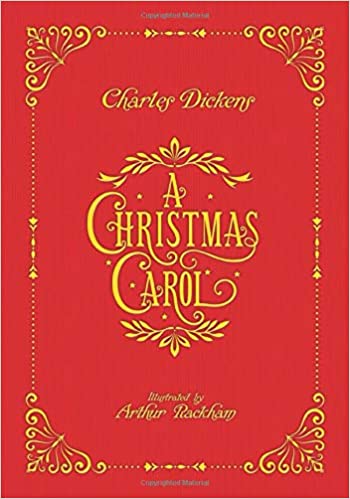
The Wife and I have been watching a different Christmas movie each evening in the run-up to Christmas.
In the midst of a party-less pandemic, it is the next best thing.
We started the first night with A Christmas Carol (the George C. Scott version), followed by How the Grinch Stole Christmas, then the next night, my favorite, The Bishop’s Wife.
Then last night we watched a movie neither of us had ever seen, The Man Who Invented Christmas, a loose biopic on Charles Dickens’s writing of A Christmas Carol. The movie is as much fiction as fact, but it led me to a realization: I had never actually read the story Dickens wrote. I had seen several versions of the movie, and my wife and I go every year to the local theatre to see the play, but I had never read the actual words Dickens wrote.
After the movie, I went to my study to do some writing, and while there I noticed one of the temperamental track lights on the mezzanine in our library had flickered off again, so I scurried up the spiral staircase to tinker with it. My tinkering brought light, and when I looked down on the bookshelf where the light shone I noticed on top of a row of vertically stacked books a thin leather-bound book, with gold embossed pages, and gilded lettering on the cover:
A Christmas Carol
Charles Dickens
I then remembered the book was a gift from my wife, but I had not yet read it.
I took the book with me to bed, and when I awoke this morning I began reading. As I read I came across dialogue I had never noticed in the movie or theatrical versions of the book. It occurs during Scrooge’s visitation by the first spirit. After watching in fond remembrance the joy his former employer, Fezziwig, brought to his employees by his kindness. The spirit sarcastically notes that what Fezziwig did was but a “small matter” costing “but a few pounds of your mortal money.”
Scrooge, in a revelation akin to that the Holy Spirit works upon us in reading Scripture, states:
It isn’t that, Spirit. He has the power to render us happy or unhappy; to make our service light or burdensome; a pleasure or a toil. Say that his power lies in words or looks; in things so slight and insignificant that it is impossible to add and count ‘em up: what then? The happiness he gives, is quite as great as if it cost a fortune.
Kindness costs us so little but is so valuable to others. This is what Dickens tells us Scrooge realizes, and it is profound.
I’m not going to tell you the message of Christmas is kindness or that you should drink a cup of kindness to auld lang syne. But Christmas is the celebration of the birth of Jesus, whose death and resurrection made possible the promise of sanctification, which brings to life the kindness so vividly revealed to Scrooge. GS

